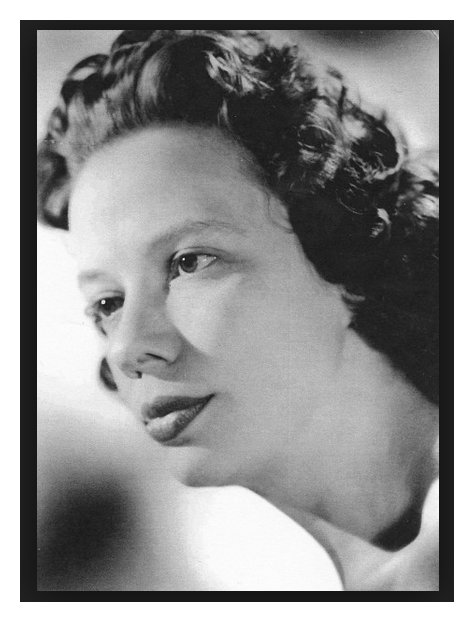

| Patricia Kern (born July 14, 1927)
is a British mezzo-soprano and voice teacher. She was born in Swansea, Wales. From 1949 to 1952 she studied with Gwynn Parry Jones at the Guildhall School of Music and Drama, London. She began her career with Opera for All (1952–5). In 1959 she joined Sadler’s Wells, making her début in Rusalka. For ten seasons she was a member of the company, her most notable achievement being her interpretations of La Cenerentola, Rosina in The Barber of Seville, Isolier in Le comte Ory and Isabella in L'italiana in Algeri. Her other roles included Iolanthe, Hänsel, Cherubino, Pippo in Rossini’s La gazza ladra, and Josephine in the première of Malcolm Williamson’s The Violins of Saint-Jacques (1966). She made her Covent Garden début in 1967 as Zerlina. Her American début was at Washington, DC, in 1969 and in 1987 she sang Marcellina in Chicago. Kern's stage personality was described as engaging and sympathetic. She made several recordings, including Hansel and Gretel, Merrie England of Edward German, and Monteverdi's Madrigals with (among others) Norma Burrowes, Ryland Davies, Stafford Dean, Anne Howells, Robert Lloyd, and Benjamin Luxon, conducted by Raymond Leppard. [Names which are links both in this box and below refer to my interviews elsewhere on this website. BD] Kern went on to teach Voice at the University of Toronto. 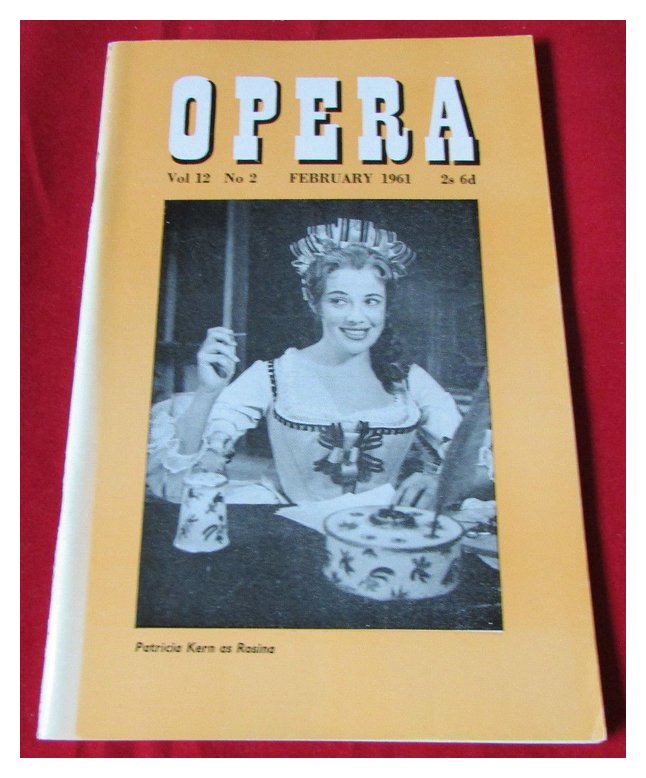
|
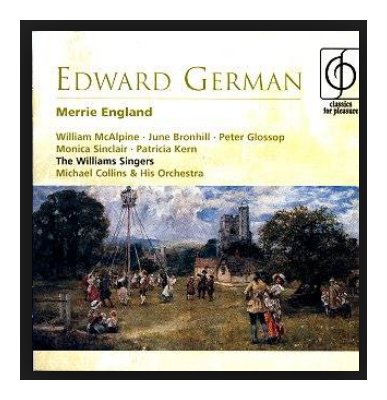 PK: I find anything to do with music eventually
is fun hard work. You’re leading somewhere that’s most enjoyable, to do something
that’s most enjoyable. I’ve always loved theater ever since I was tiny.
I was on the other side of theater... should we say I used to be in the English
Variety, on stage singing and dancing before this other happened. So
I wouldn’t say it is work hard work, but the outcome is great fun, really.
PK: I find anything to do with music eventually
is fun hard work. You’re leading somewhere that’s most enjoyable, to do something
that’s most enjoyable. I’ve always loved theater ever since I was tiny.
I was on the other side of theater... should we say I used to be in the English
Variety, on stage singing and dancing before this other happened. So
I wouldn’t say it is work hard work, but the outcome is great fun, really.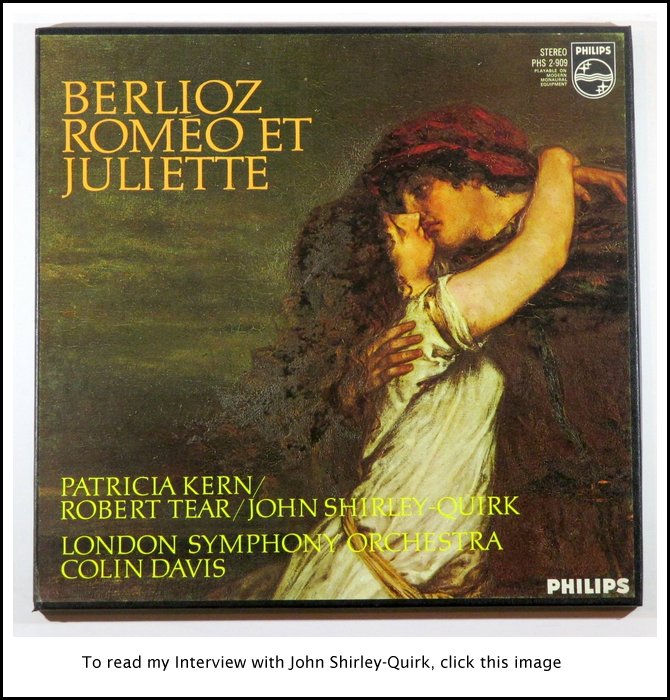 PK: For the singer, we have to understand every
word we’re talking about. Otherwise the communication goes out of the
window. The weight of the important or key word changes from each language.
The stress is in a different place. From the audience point of view,
they do enjoy watching the sur-titles, unless, of course, they understand
exactly what you’re talking about. They seem to enjoy seeing the sur-titles
up there. It isn’t a deterrent. I don’t think it’s a deterrent
at all if the translation is a good one.
PK: For the singer, we have to understand every
word we’re talking about. Otherwise the communication goes out of the
window. The weight of the important or key word changes from each language.
The stress is in a different place. From the audience point of view,
they do enjoy watching the sur-titles, unless, of course, they understand
exactly what you’re talking about. They seem to enjoy seeing the sur-titles
up there. It isn’t a deterrent. I don’t think it’s a deterrent
at all if the translation is a good one. 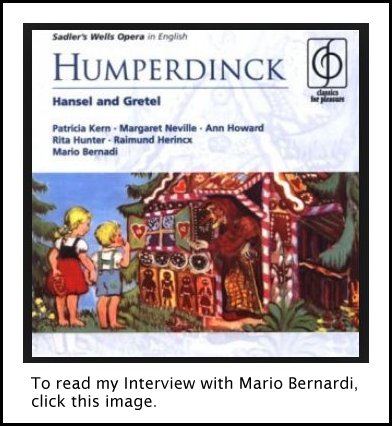 PK: I’ve done Hansel and Gretel, Romeo and Juliet, and I’ve done a lot
of recordings with Sills. [The Sills sets include Maria Stuarda, Anna Bolena, Manon, Thaïs, and Lucia.] I loved, and still do love,
the Hansel and Gretel recording
because it sounds quite theatrical at times, and to get that on a recording
is special. It was good.
PK: I’ve done Hansel and Gretel, Romeo and Juliet, and I’ve done a lot
of recordings with Sills. [The Sills sets include Maria Stuarda, Anna Bolena, Manon, Thaïs, and Lucia.] I loved, and still do love,
the Hansel and Gretel recording
because it sounds quite theatrical at times, and to get that on a recording
is special. It was good. 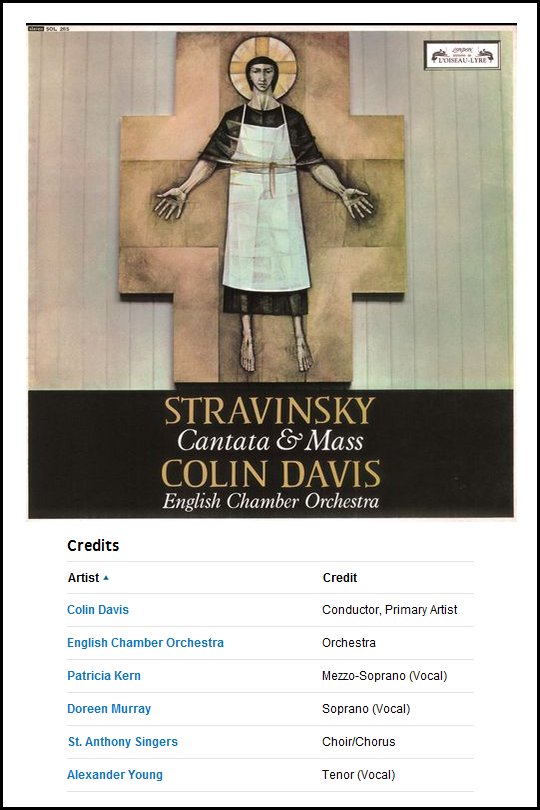 PK: No. No.
PK: No. No.This conversation was recorded in her hotel in Chicago on November
5, 1987. Portions were broadcast on WNIB in 1992 and 1997. This
transcription was made in 2015, and posted on this website at that time.
To see a full list (with links) of interviews which have been transcribed and posted on this website, click here.
Award - winning broadcaster Bruce Duffie was with WNIB, Classical 97 in Chicago from 1975 until its final moment as a classical station in February of 2001. His interviews have also appeared in various magazines and journals since 1980, and he now continues his broadcast series on WNUR-FM, as well as on Contemporary Classical Internet Radio.
You are invited to visit his website for more information about his work, including selected transcripts of other interviews, plus a full list of his guests. He would also like to call your attention to the photos and information about his grandfather, who was a pioneer in the automotive field more than a century ago. You may also send him E-Mail with comments, questions and suggestions.